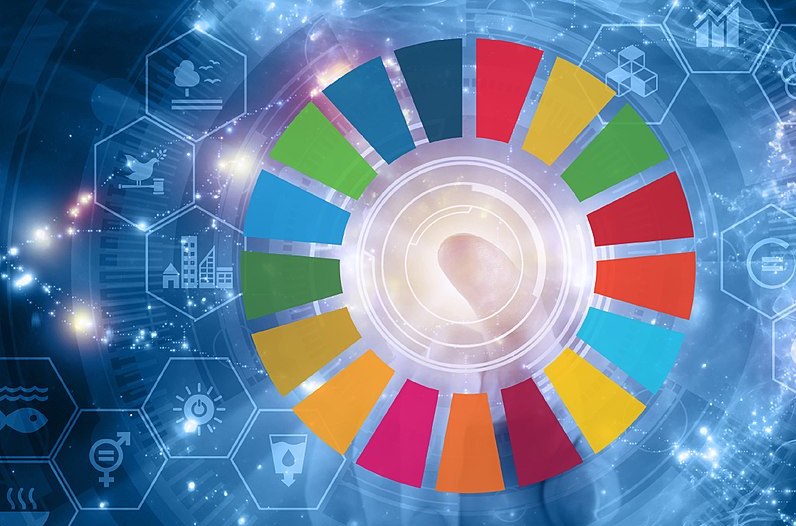 By MIRIAM ACZEL
By MIRIAM ACZEL
Last December, I had the opportunity to represent Leaders in Energy at the Youth Global Forum in Paris. The forum brings together over 100 participants, experts, and young entrepreneurs from all over the world for an exciting three days of discussing ideas and solutions to pressing global problems.
The event focused on Worldwide Impact Investing: The Role of Entrepreneurs. One prominent theme was sustainable development, with a particular emphasis on the UN Sustainable Development Goals (SDG’s) and how to use impact investing to scale up and promote clean energy and sustainable lifestyles. This year, the Youth Global Forum will be held in Amsterdam, and the topic is “Inclusive Development vs Industry 5.0: Where is the future?”. The theme focuses on society’s rapid move towards a future where machines and technology are becoming increasingly interlinked with our daily lives, and seeks to equip participants with the skills and knowledge necessary to adapt to our new and changing conditions, while promoting social inclusion, environmental justice, and ethical implementation of new technologies.
People, Planet, and Profit
Last year’s event taught me more about the role of “impact investing”—a term first coined in 2007 by The Rockefeller Foundation in 2007 that refers to the implementation of a triple bottom line approach, through which a company seeks not only financial profit but also positive impact on people and society, and the planet. In recent years, impact investing has taken on an increasingly important role, particularly as we are already experiencing catastrophic climate change impacts including rising sea levels, extreme weather patterns, increased frequency of natural disasters, warming global temperatures, and biodiversity and species loss, among others.
ESG Investing
I also learned more about ESG investing, an investment approach that looks at environmental, social, and governance issues and follows the assumption that socially responsible business practices minimize a business or company’s operational risks and ensures robustness in the future. ESG investing, as Robert Rubenstein argued, is simply ‘good business sense’—a logical approach to ensuring environmental and social responsibility on the grounds that it is also better for business. Moreover, recent reports show that ESG investments are growing, and comprise roughly one quarter of all global assets managed currently.
Emerging Technologies and the SDGs
The continued integration of man and machine poses some unique and important opportunities in the move towards a low-carbon future, and presents potential solutions for climate change mitigation. Moreover, artificial intelligence can play a crucial role in driving impact investing, and at the same type, act as a driver in discovering new technologies. For example, entrepreneur and LUMO Labs advisor Bastiaan den Braber’s venture-builder program that focuses on emerging technology startups recently changed its investment approach to focus on ‘social-impact’ ESG startups. According to den Braper, “the advent of very powerful emerging technologies such as artificial intelligence, machine learning, robotics, blockchain, and XR can make big differences when combined with smart money coming from venture capital.” Moreover, he argues that this “combination of the two has been the best that has ever happened to make sustainable development goals a reality.” The United Nation’s 17 Sustainable Development Goals (SDGs) provide a framework or blueprint that venture funds like LUMO Labs and others are currently using to drive and model their investment strategies. Thus, while these investment firms are taking ques and guiding investments using the blueprint of the UN SDG’s, their investment dollars in new and emerging technologies including artificial intelligence, machine learning, and blockchain financing among others also helps drive the discovery of technologies, which may post potential solutions to some of our most pressing global problems. For example, a few months ago, pre-seed venture fund Boost VC’s Managing Director Adam Draper took to Twitter to state that he was searching for Ocean-related tech startups to invest in, because, in his words, “the Ocean is the oldest frontier, and it’s time to solve global problems with the latest technology.” Therefore, by pairing cutting-edge technology and tech startup innovation with socially and ethically conscious impact investment practices that follow the structure of ESG investing, there is a positive synergy between technology and financing, where increasing capital will further propel development of crucial technologies, and nascent technologies and companies with potential for environmental and social good will draw more investment. Moreover, the positive changes that will come about as a result of this synergy will be good financially, as well as socially and environmentally, in other words, provide ‘triple bottom line’ benefits, and also drive technology discovery and implementation.
Call for Applications
The Fifth Annual Youth Global Forum 2019’s call for Participants and Project Presenters is officially open until June 1! Don’t miss the opportunity to spend an exciting week in one of Europe’s tech hubs, the city of Amsterdam, and gain invaluable new skills, knowledge and experiences that will serve as a solid foundation for your future entrepreneurial & professional endeavors. Project Presenters will also compete for the Youth Time Idea Grant (10.000 EUR), fully funded scholarships to study in leading business schools in Europe and South-East Asia, and a paid internship in a clean energy company. The event will take place in Amsterdam, from December 2nd – 6th with over 100 participants, experts and trainers from all over the world.
Miriam Aczel is a President’s Scholar PhD Candidate at Imperial College London’s Centre for Environmental Policy. Her research is on international energy science and policy, with a focus on mitigation of environmental and health impacts of shale gas, as well as citizen science and public participation mechanisms. She is also co-founder and co-director of the Amir D. Aczel Foundation for Research and Education in Science and Mathematics, a nonprofit supporting educational programs in Cambodia and beyond.
Miriam is Director of Communications and blog editor for Leaders in Energy.



Leave a Reply